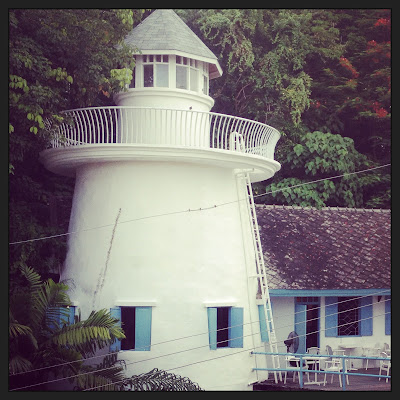My heart skipped a beat last week when I was asked to take a trip with John Gray Sea Canoe. John Gray is a bit of a local – and international – celebrity in the ecotourism industry, and I was excited to finally go on one of his famous trips in Kho Hong, an island just half an hour from the Cape Panwa Hotel beach.
We left the jetty in the afternoon and slowly cruised to the ocean – I really enjoyed the ride because the scenery of the Phang Nga Bay was beautiful all along the way (and the trip hadn’t even started!) We arrived at an island where we switched to ‘impact free’ inflatable canoes that gave us the mobility to travel into the ‘hongs’ that literally translates to ‘rooms inside the island’.
Approaching the caves on our kayaks was one of those enthralling life moments that I hope to forever etch into memory as what the imagery of “paradise” would be. Being at sea on a kayak is an interesting feeling. The quiet, idleness of it all makes you feel like you are absolutely surrounded by tranquility and peace. Each couple in the three-person kayak had a guide to help paddle and maneuver in the wavy seawater; this also allowed us to just sit back and take it all in.
The view from the kayak was simply fantastic! The miniature islands stood ever so majestically above the water, as if someone had dipped each of them in thick stalactites and then sprinkled their tops with the lush greenery of tropical vegetation.
Because you can get so close on a kayak, you can see every bump and concave of the varied rock formations that were shaped by the changing of tides over the years, little by little.
We soon arrived at an entrance to the caves. They were these naturally formed tunnels that lead to the middle of the island. The space of the entrance was so tight that we had to lie flat and keep our heads down just to get through to the other side. I felt a little claustrophobic being so close to the ceiling of the tunnel, but it was all the while exciting.
Inside the caves, it was breathtakingly entrancing – it felt like I had been transported to another world. On a side note, I was happy that John Gray’s team makes it an effort to give all tour-goers an introduction to how to behave on the trip and how to keep nature the way it is. It is important to be an observer and take in the gracious gift of beauty that nature had given us, without leaving our footprint in it.
We visited two more caves, and discovered a plethora of different wildlife inhabiting the islands, there were bats in some of the caves, all sorts of birds flying in the surrounding areas; and surprisingly unafraid of humans, monkeys were goofing around on the walls of the caves.
After exploring in the caves, we were given time to free paddle around the islands before we had to get back on the boat for sunset. For dinner, the guides moved the boat to a special spot in Phang Nga Bay for an amazing view of the sunset, while we feasted on a superb fresh seafood buffet on deck.
After dinner, we made our own Kratong with the assistances of the guides. The Kratong is a lotus shaped container decorated with an intricate folding of banana leaves, flowers and candles.
Once the darkness of the night blanketed the beautiful bay, we returned to a Hong on our kayaks to release our Kratongs. Traditionally, floating of the Kratong signifies letting go of all one’s hatred, anger, and defilements. It was sort of a cleansing of the mind kind of ritual for the local people.
We weren’t allowed to use torches and were asked to keep quiet as respect to the others when we released our own Kratongs. We sat quietly as the candles on our Kratongs went out and continued to float forward in silence. In this moment, we were surrounded by peace and mesmerising starlight. It was as if time stood still and your mind all the sudden clears of all worries. The experience verged on being mystical.
It was a truly magical and out of this world experience – the feeling was so special, I didn’t want it to end. Next time, I think I will join John’s overnight camping trip – I’m sure it will be just as unforgettable as this.

























